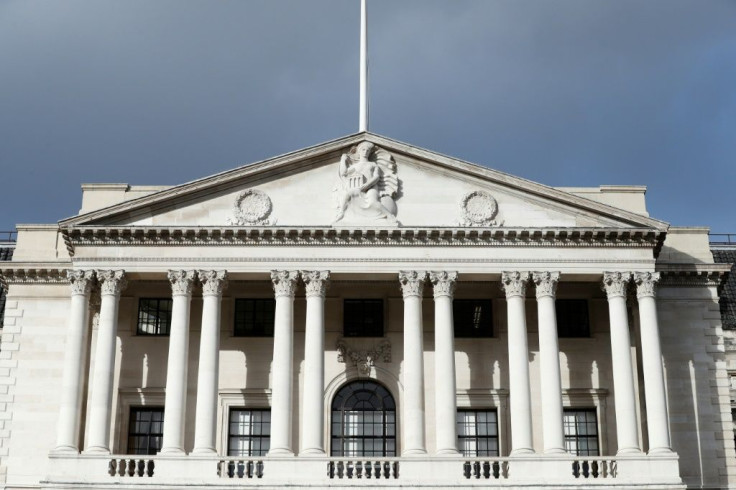Bank Of England Says Keeps Interest Rate At 0.75%

The Bank of England on Thursday said it had voted to keep its main interest rate at 0.75 percent as it mulls Brexit uncertainty and weak global growth.
The Monetary Policy Committee decided unanimously to hold borrowing costs at a regular meeting held Wednesday, the BoE said in published minutes.
"Since the MPC's previous meeting, the trade war between the United States and China has intensified, and the outlook for global growth has weakened," the Bank of England said.
It noted also that "shifting expectations about the potential timing and nature of Brexit have continued to generate heightened volatility in UK asset prices, in particular the sterling exchange rate."
Unlike the European Central Bank and US Federal Reserve which are both cutting rates, the BoE is sitting tight, also as inflation weakens in Britain.
"In the event of a no-deal Brexit, the exchange rate would probably fall, CPI inflation rise and GDP growth slow," the BoE said Thursday.
The pound showed little reaction to the expected UK rate decision, as investors digested news of an unexpected 0.2-percent drop in British retail sales in August.
"Given the drop in (British) GDP in the second quarter, the fall in core inflation to an almost three-year low in August and the ongoing Brexit drama, there was never much chance that the MPC would raise interest rates," noted Thomas Pugh at Capital Economics research group.
"And even though the tone of the minutes was slightly more dovish than in August, we do not expect the MPC to follow in the footsteps of the Fed and the ECB and loosen policy unless there is a no deal Brexit.
Separately, the BoE published a survey showing that nearly two-thirds of almost 400 UK companies felt they were "as ready as can be" for a no-deal Brexit, down slightly from July.
The proportion of companies that did not feel ready for a no-deal Brexit rose to about one in six, from around one in ten.
"However, even companies that felt 'ready' for a no-deal Brexit still expected output, employment and investment to be markedly lower in that case compared with a scenario with a deal and transition period," the BoE added.
Britain is set to leave the European Union on October 31, even without a deal according to Prime Minister Boris Johnson.
However, talks continue between the UK government and Brussels on agreeing a orderly departure -- but time is running out.
"Current major uncertainties about the economy and the domestic political situation are more than adequate reasons in themselves for the Bank of England to maintain a 'wait and see' approach on interest rates," said Howard Archer, chief economic advisor to forecasters EY ITEM Club.
© Copyright AFP 2024. All rights reserved.





















